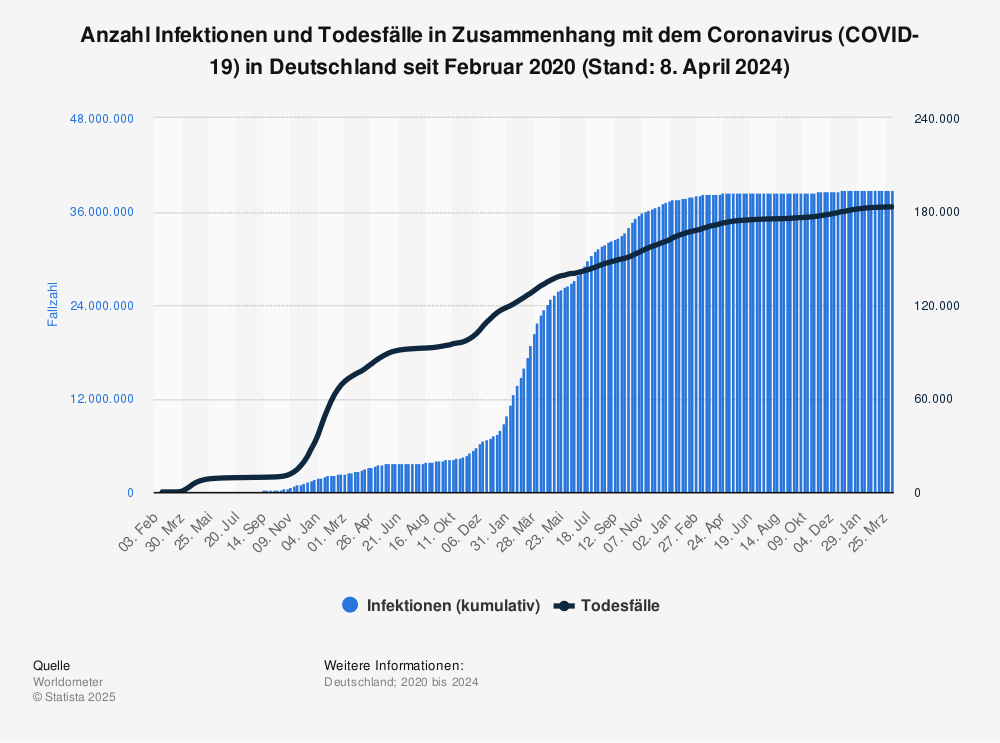Coronavirus 2023 - An overview of the Covid variants in Germany
The COVID-19 pandemic had Germany, like the rest of the world, in its grip for a long time. Today, attention is once again focusing on the different variants of the SARS-CoV-2 virus.
These variants can continually influence the spread of the virus and the effectiveness of vaccines.
An Overview of Current COVID-19 Variants in Germany
○ Omicron Variant (B.1.1.529) The Omicron variant of the SARS virus was identified in South Africa in November 2021. It exhibits a high number of mutations in the spike protein, indicating increased transmissibility and potential immune evasion. Concerns are raised about its impact on vaccines.
○ Epsilon Variant (B.1.429) Discovered in California, the Epsilon variant carries mutations like L452R that could affect antibody binding. Its effects on vaccines are not fully understood yet.
○ Eta Variant (B.1.525) The Eta variant of the coronavirus was found in the UK and Nigeria, containing the E484K mutation, which might influence the immune response. Its effects on vaccines are still under research.
○ Delta Variant (B.1.617.2) First detected in Germany in March 2021 and originally identified in India, the Delta variant rapidly spread due to its increased transmissibility. In some German regions, Delta has led to a rise in infections, posing challenges to pandemic containment efforts. Vaccines, especially in fully vaccinated individuals, still provide good protection against severe illness.
○ Beta Variant (B.1.351) and Gamma Variant (P.1) Detected in Germany in January 2021, the Beta and Gamma variants were initially identified in South Africa and Brazil, respectively. Less prevalent in Germany than Delta and Alpha, they carry mutations that could compromise antibody neutralization. Vaccines continue to offer some protection, though possibly less effective than against the original variant.
○ Alpha Variant (B.1.1.7) The Alpha variant of the coronavirus surfaced in Germany in November 2020 and was first discovered in the UK. While less contagious than the Delta variant, Alpha is still easily transmissible. Vaccines remain effective against the Alpha variant.
Local Variants
In addition to the mentioned variants, some local variants have been identified in Germany in recent years. These variants differ slightly from known variants, and ongoing research is exploring their impact on disease severity and vaccine effectiveness.
It's crucial to note that virus variants continue to pose a challenge. Achieving a high vaccination rate and adhering to hygiene measures are critical to curbing spread and minimizing the impact of variants.
The PCR test remains a reliable indicator
The polymerase chain reaction test, or PCR test for short, is an essential diagnostic method for identifying an infection with the coronavirus, in particular SARS-CoV-2, the pathogen that causes COVID-19.
This highly accurate molecular test has played a central role in containing the virus since the beginning of the pandemic and remains an indispensable tool in the diagnosis and monitoring of COVID-19 infections worldwide.





















